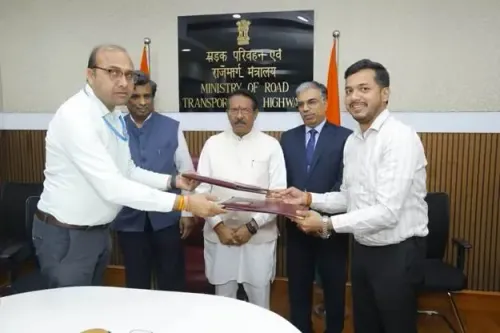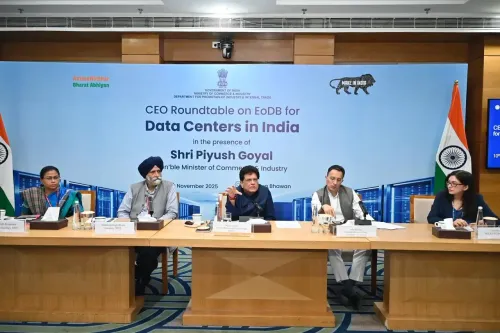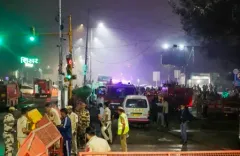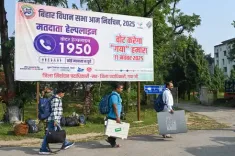Has India Unveiled Its First Hydrogen Highways for Clean Long-Haul Mobility?
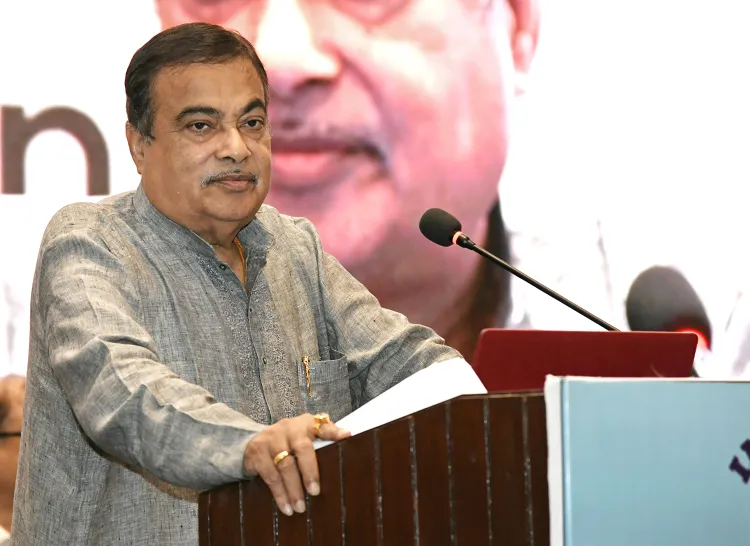
Synopsis
Key Takeaways
- Launch of India's first hydrogen highways to support clean mobility.
- Nitin Gadkari emphasizes the importance of hydrogen as the fuel of the future.
- Significant budget allocation of Rs 500 crore for hydrogen truck trials.
- Establishment of nine hydrogen refueling stations.
- Efforts to reduce crude oil dependency to promote a sustainable energy future.
New Delhi, Sep 26 (NationPress) The Union Minister for Road Transport and Highways, Nitin Gadkari, officially inaugurated India’s pioneering "hydrogen highways" on Friday, propelling the nation’s green hydrogen goals forward.
This initiative entails the establishment of hydrogen fueling stations along key national highway routes to facilitate hydrogen-powered freight transportation for long distances.
"Hydrogen is the fuel of tomorrow. We have commenced the world's inaugural large-scale hydrogen truck trials. A financial allocation of Rs 500 crore has been approved for five consortiums across ten routes, involving 37 vehicles," Gadkari stated during the launch.
"Nine hydrogen refueling stations will be set up to support these trials. These corridors will mark the advent of India’s hydrogen highways, fostering an ecosystem for clean, long-distance mobility," he added.
He emphasized the urgent need for India to mitigate its reliance on crude oil imports, which currently stands at 87% of demand, costing the nation nearly Rs 22 lakh crore each year.
The launch event took place at the inaugural World Hydrogen India summit hosted by S&P Global Commodity Insights.
During the summit, policymakers, industry leaders, and global experts engaged in discussions about regulatory frameworks, financing models, and trade corridors to create a sustainable hydrogen ecosystem.
The discussions also focused on how chemical companies can utilize hydrogen for cleaner production processes, adopt innovative technologies, and implement strategies for sustainable industrial evolution.
Additionally, experts deliberated on transitioning from grey hydrogen in fertilizer production to greener alternatives. The panel evaluated the economic viability, collaboration models, and supply chain partnerships required to secure green hydrogen for ammonia and urea manufacturing.
Shushil Kumar Singh, Chairman of Mumbai Port Authority & Deendayal Port Authority, underscored the significance of international certification, the development of dedicated shipping corridors and logistics infrastructure, as well as strategies to align India's hydrogen exports with global cost and quality benchmarks.

